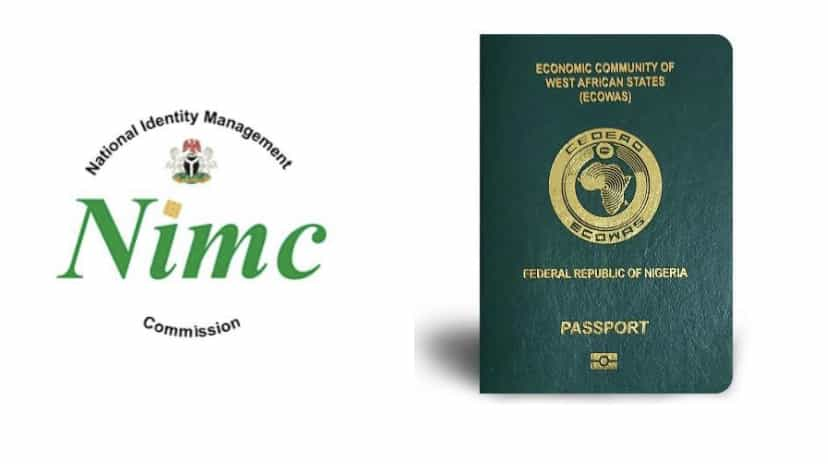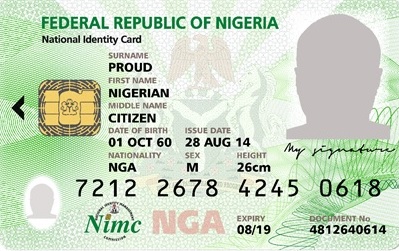Nigeria’s National Identity Management Commission (NIMC) has introduced a groundbreaking multipurpose identification card. This innovative card offers numerous benefits that can significantly improve the quality of life for citizens. Furthermore, the card’s introduction marks a significant milestone in Nigeria’s efforts to modernize its identity management system. Consequently, this development is expected to have a positive impact on the country’s economy and society.
Simplified Access to Government Services
Citizens can easily access various government services, including healthcare, social welfare programs, and educational initiatives, with the multipurpose ID card. Additionally, this eliminates the need to carry multiple identification documents, saving time and reducing frustration. Meanwhile, the card’s convenience factor is expected to increase citizen engagement with government services. Moreover, this increased engagement will lead to better service delivery and improved governance.

Enhanced Financial Inclusion
The card links individuals to the banking system, allowing them to access essential financial services. Moreover, this is particularly important for many Nigerians who currently lack bank accounts, limiting their ability to save money or secure loans. Consequently, the card promotes financial inclusion and reduces poverty. Furthermore, this increased financial inclusion will have a positive impact on the country’s economy.
Improved Security Measures
Each ID card has a unique identification number, helping to track citizens and reduce identity theft. Additionally, the card’s design includes enhanced security measures, making it harder for fraudsters to replicate. Meanwhile, these security features provide an additional layer of protection for citizens. Moreover, this increased security will give citizens peace of mind and confidence in the government’s ability to protect their identity.
Healthcare Access and Social Security
The multipurpose ID card facilitates access to healthcare services and social security programs. Consequently, citizens can use the card to identify themselves when receiving medical services, and healthcare providers can verify patients’ identities and access their medical history efficiently. Furthermore, this streamlined process improves healthcare outcomes and reduces administrative burdens. Meanwhile, the card’s impact on healthcare access will be significant, leading to better health outcomes for citizens.
Education and Digital Transformation
The card benefits the educational sector by providing students with access to educational resources and scholarships. Moreover, the multipurpose ID card promotes digital transformation by serving as a key to various online platforms, enabling citizens to access government services digitally. Consequently, this digital revolution opens up new opportunities for citizens to engage with government services. Furthermore, this increased digital engagement will lead to better service delivery and improved governance.
Rollout Plan and Awareness Campaigns
The government plans to implement the ID card in phases, ensuring a smooth transition for citizens. Additionally, awareness campaigns will accompany the rollout to educate the population about the card’s benefits and how to obtain it. Consequently, this phased approach ensures that citizens are well-informed and prepared to take advantage of the card’s benefits. Meanwhile, the government’s commitment to awareness campaigns will be crucial to the card’s success.

Key Features of the New ID Card
The new ID card boasts several innovative features, including:
1. Machine-readable Zone (MRZ): Conforms to ICAO standards for e-passport information.
2. Identity Card Issue Date and Document Number: Aligns with ICAO standards.
3. Additional Features: Includes travel, health insurance information, microloans, agriculture, food stamps, transport, and energy subsidies.
4. Nigeria’s Quick Response Code (NQR): Contains the national identification number.
5. Biometric Authentication: Uses fingerprint and picture authentication as the primary medium for identity verification.
6. Offline Capability: Allows transactions in areas with limited network coverage or zero infrastructure connectivity.
7. Debit and Prepaid Card Functionality: Caters to both banked and unbanked individuals.
Nigeria’s new multipurpose ID card is a significant step towards modernizing identity management. Its numerous benefits have the potential to improve the quality of life for citizens, and its success will depend on the government’s commitment to educating the public. As Nigeria continues to evolve and grow, this innovative ID card is poised to play a vital role in shaping the country’s future. Consequently, the government must ensure that the card’s implementation is successful, and its benefits are realized by all citizens.

















